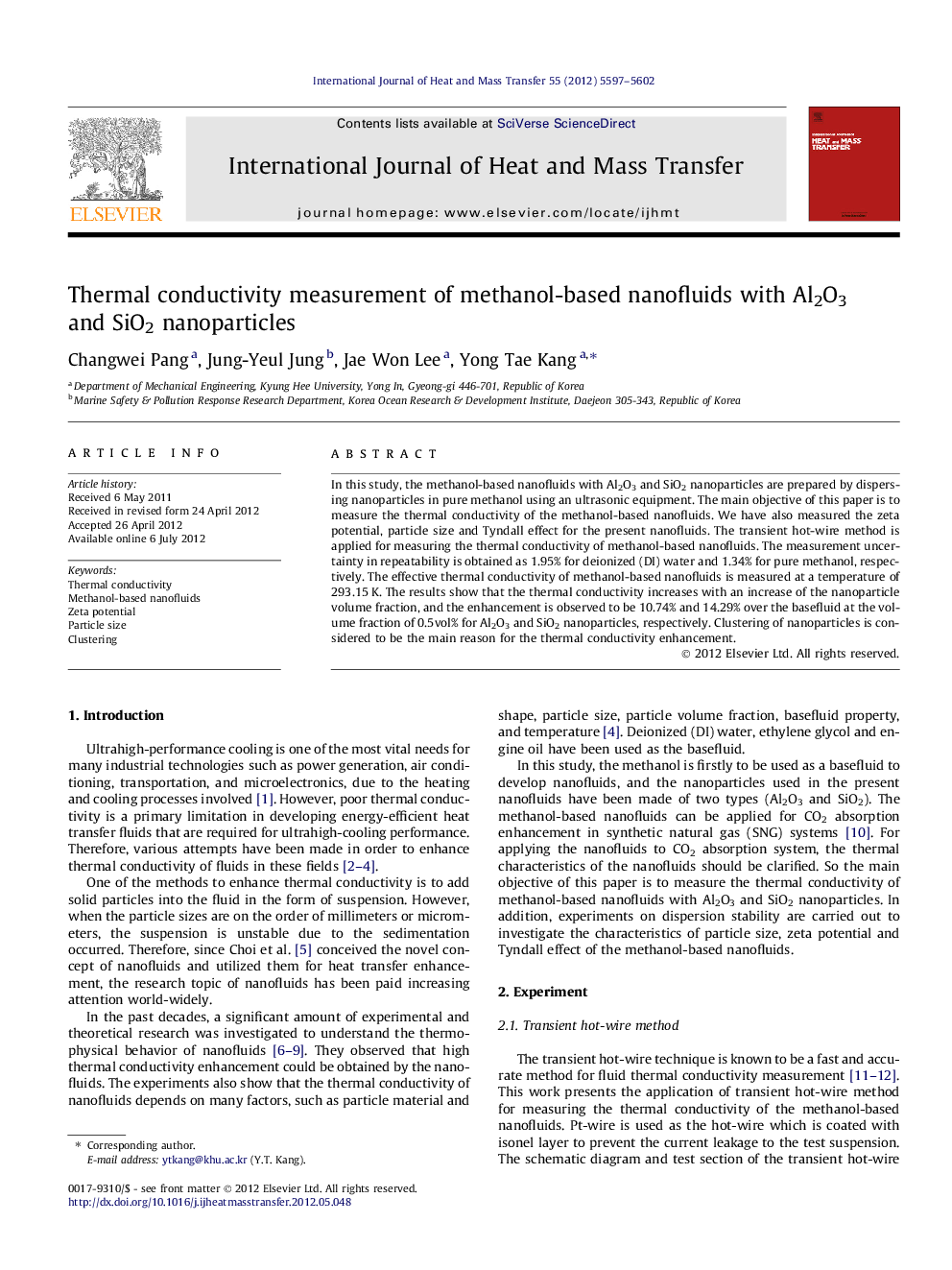| Article ID | Journal | Published Year | Pages | File Type |
|---|---|---|---|---|
| 659121 | International Journal of Heat and Mass Transfer | 2012 | 6 Pages |
In this study, the methanol-based nanofluids with Al2O3 and SiO2 nanoparticles are prepared by dispersing nanoparticles in pure methanol using an ultrasonic equipment. The main objective of this paper is to measure the thermal conductivity of the methanol-based nanofluids. We have also measured the zeta potential, particle size and Tyndall effect for the present nanofluids. The transient hot-wire method is applied for measuring the thermal conductivity of methanol-based nanofluids. The measurement uncertainty in repeatability is obtained as 1.95% for deionized (DI) water and 1.34% for pure methanol, respectively. The effective thermal conductivity of methanol-based nanofluids is measured at a temperature of 293.15 K. The results show that the thermal conductivity increases with an increase of the nanoparticle volume fraction, and the enhancement is observed to be 10.74% and 14.29% over the basefluid at the volume fraction of 0.5vol% for Al2O3 and SiO2 nanoparticles, respectively. Clustering of nanoparticles is considered to be the main reason for the thermal conductivity enhancement.
